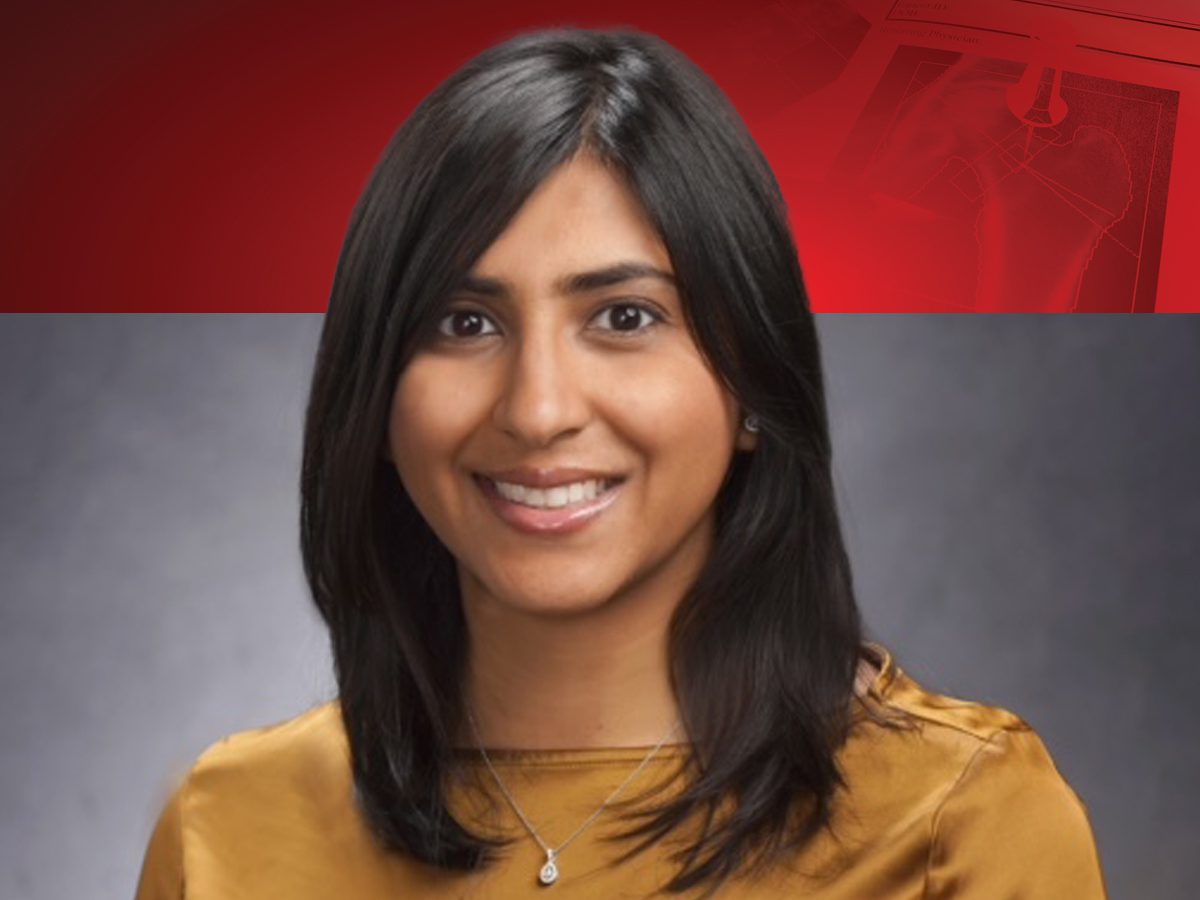Stay Strong

Priya Shah, DO
Cooper Care Alliance addresses the importance of bone health as you age
Osteoporosis is sometimes called a silent disease because a broken bone is often the first sign that someone has it. At Cooper Care Alliance, an award-winning endocrinologist is committed to educating her patients on ways to prevent this bone-weakening disease.
“Being aware of your bone health and taking steps to keep the bones healthy is critical to maintaining one’s quality of life as we age, yet people don’t talk about it,” says Priya Shah, DO. “Osteoporosis is a prominent condition in the United States that is often overlooked. Yet 54 million Americans have osteoporosis or low bone mass, and if they are not diagnosed, they may end up with a fracture, which can lead to an earlier death.”
“Your bones are your body’s foundation.”
To help make an accurate and timely diagnosis, Dr. Shah is a strong proponent of universal screening of all women at age 65, or younger if they are at higher risk (family history, smoker, heavy drinker, early menopause and very low BMI, for example). A primary care physician or gynecologist can order a screening DEXA scan to determine bone mineral density and the degree of bone loss the patient may have.
Essentially an X-ray, the DEXA scan checks the body, especially the hips and spine, measuring how much a patient’s bones absorb the X-rays. The scan then provides a T score, which compares the patient’s bones to the bone mineral density of a healthy 30-year-old.
“Positive 1 to negative 1 is considered normal, negative 1 to negative 2.5 means you have osteopenia, the precursor to osteoporosis, where the bones are becoming more porous,” Dr. Shah says. “And if you hit 2.5, you have osteoporosis. Severe is when the T score is less than -2.5 with fracture.”
In her practice, Dr. Shah doesn’t rely solely on a DEXA scan to determine a patient’s vulnerability to the disease. She looks for potential secondary causes with every patient she sees.
“In post-menopausal women, lowered estrogen – a hormone that helps protect the bones – can be a reason to test for osteoporosis. And those who experience early menopause, in their 30s or 40s, have less estrogen over time, causing a higher risk. Certain medications, such as long-term use of steroids or treatments for acid reflux, can also be a contributor,” she says.
Although generally considered a women’s disease, some men also develop osteoporosis, especially those with a low testosterone level, which can sometimes be caused by cancer treatments.
Patients of both genders whose body produces too much calcium or who have an overactive thyroid condition (hyperthyroidism) that is undiagnosed or mistreated are also at higher risk.
Dr. Shah encourages her patients to be proactive and advocate for themselves. Treatment options are available to manage – and minimize – any loss of bone density.
“We follow metabolic tests and mental health, but we need to follow bone health too. If you’re aware that you have low bone mass, you want to be sure you’re doing everything you can to maintain the health of your bones – take calcium and vitamin D, live a healthy lifestyle and get exercise that includes weight-bearing exercises as well as those that promote flexibility and balance.”
And, she adds, start at a young age. “Your bones are your body’s foundation. We get bone acquisition and peak bone mass when we’re young, and then we all start to lose it over time. So live a healthy lifestyle right from the beginning.”
Endocrinologists often get referrals of patients who have had “fragility fractures,” what might be a compression fracture in the spine or a fracture of a big bone – the hip or spine –from a minor fall, one with “low-amplitude force.”
“Big bones shouldn’t break from a trip and fall,” Dr. Shah adds. “The whole goal of osteoporosis treatment is to prevent a fracture.”
Sometimes patients may begin to feel as if they are shrinking or losing height. They also may experience bone pain, in which case they should ask for a DEXA scan. If the screening shows osteoporosis, patients will be prescribed one of two types of medications – one slows the breakdown of the bone, slows the bone loss and improves bone mineral density over time. The other class of medication, for more severe osteoporosis, stimulates the body to make more bone – to increase bone mineral density.
Dr. Shah frequently treats patients with osteopenia and osteoporosis, helping them restore their strength and mobility, while also preserving it for the years ahead. Same-day appointments with Dr. Shah are often available. Call today to schedule yours.


